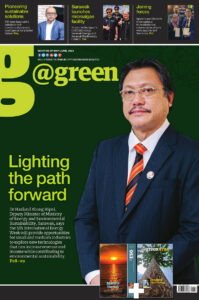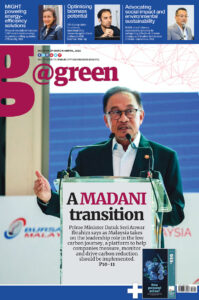Kedah and Penang government should look into people’s interests while still protecting the health of Sungai Muda
The water source dispute between Kedah and Penang governments should be handled more diplomatically, stated the Global Environment Centre (GEC).
Threatening only exacerbates the dispute and negatively impacts the people’s commercial values and economic activities, and social obligations.
The proposed riverside water storage project undoubtedly will affect the natural flow of the longest river in Kedah, the Muda River. It will disrupt the river’s ecology and degrade the water quality and quality downstream within the Penang State boundaries.
A study of Sungai Muda in 2010 found that the river is already under threats of erosion over the last 20 years due to the meandering geomorphological nature of the Sungai Muda system, which has serious risks for any engineering activities in the area.
Other factors such as new land-uses and increased water demand will also worsen the river’s condition. The current land-use composition at Sungai Muda river basin includes infrastructures by five per cent, agriculture by 40 per cent, forest by 50 per cent and others by five per cent.
In response to the dispute, the Director of GEC, Faizal Parish said: “Kedah state government has a valid concern to ensure adequate water supply to meet demand, especially during the dry season.
“However, Penang has an equally valid right to have adequate water supply year-round. What is needed is a comprehensive solution to solve the problems of both states for the long term rather than a short-term grab for resources by one party,” he added.
Both States should opt for sustainable management of the river through an Integrated River Basin Management (IRBM) approach. They should also take responsibility to plan for and protect the whole river basin and the catchment areas and manage current and future water demand within the capacity of the river basin, the GEC Director suggested.
He further commented: “The multiple proposed barrages under the TAPS ((Takungan Air Pinggiran Sungai) scheme will disrupt the ecology of the river system, destroy the ecology and fisheries and induce severe siltation problems. The lower Muda river will not turn dry but instead will draw in seawater, leading to groundwater salinisation and loss of agricultural crops in both states.
With no protection of the catchment, the barrages will quickly silt up, leading to flooding problems and further cause a flow disruption.
The focus should instead be placed on enhancing the efficiency of water use in both States. The heavy use of water for Penang industries should be reduced by re-use and recycling, while domestic consumers should also not waste water resources.
In Kedah, the primary use of water is for agriculture – especially the MADA irrigation scheme, the press statement marked.
Faizal said: “Cultivation is currently an inefficient use of water and is not sustainable in the long term. New techniques such as System of Rice Intensification (SRI) rice production can boost yields while significantly saving water.
“Kedah should also reduce its non-revenue water rate (47 per cent), which signifies water wasted through pipe leakages and other losses. By working together and sharing expertise and resources, the two states can develop a win-win scenario with better catchment protection, more efficient water use and enhanced economic, social and environmental returns.”
The United Nations (UN) recognised access to water and sanitation as a fundamental human right. Approximately 200,000 people live within the Sungai Muda river basin, and about 1.776 million people in Penang have been receiving water from the upstream of Penang’s Lahar Tiang intake.
Both State governments should not risk the people’s access to clean water because they are not willing to compromise for a win-win solution. The rights and welfare of the people should be the priority.
They must negotiate the best-integrated management to resolve the water intake issue while still protecting Sungai Muda’s health to avoid river damage from the proposed riverside water storage project. — @Forest








